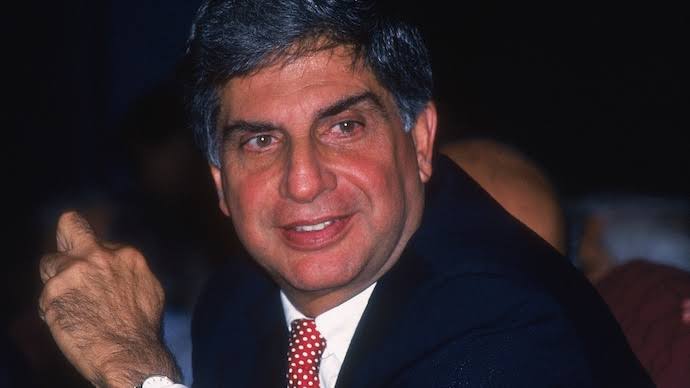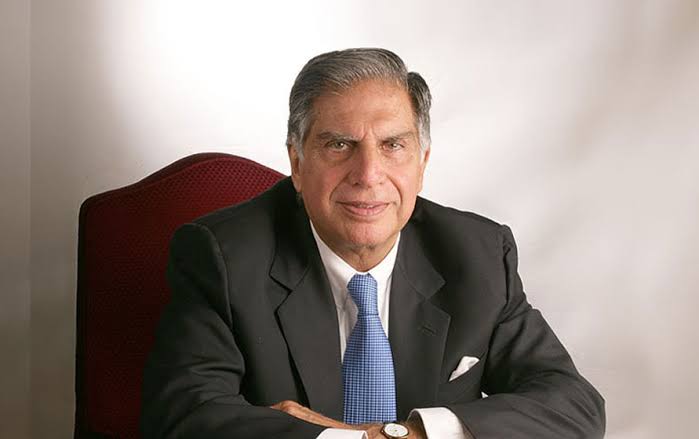Overview
Ratan Tata: Icon of the Indian economy.
Ratan Tata, born on December 28, 1937, in Mumbai, India, is one of the most influential figures in Indian business. As the former chairman of Tata Sons, the holding company of the Tata Group, Ratan Tata has been instrumental in transforming the conglomerate into a global powerhouse while maintaining a strong commitment to social responsibility and ethical practices. His journey is marked by innovation, visionary leadership, and a deep dedication to philanthropy, setting a benchmark for future generations of business leaders.
Early Life and Education
Ratan Tata was born into the illustrious Tata family, the son of Naval Tata and Sonoo Tata. His great-grandfather, Jamsetji Tata, founded the Tata Group in 1868, establishing a legacy that Ratan would continue to build upon. Ratan was educated at the prestigious Cathedral and John Connon School in Mumbai before moving to the United States for higher education. He attended Cornell University, where he earned a degree in architecture, and later pursued advanced management studies at Harvard Business School. This educational background gave him a robust foundation for his future endeavors in business.

Entry into the Tata Group!
Ratan Tata joined the Tata Group in 1961, starting his career at Tata Steel. His early experiences involved working on the shop floor, where he gained invaluable insights into the operations and challenges of the industrial sector. This hands-on approach shaped his understanding of the workforce and the importance of inclusive leadership.
In 1991, Ratan Tata became the chairman of Tata Sons, a pivotal moment in his career that would define the future of the Tata Group. He spearheaded numerous initiatives that propelled the group to new heights during his tenure, which lasted until his retirement in 2012.
Transformative Leadership
Under Ratan Tata’s leadership, the Tata Group expanded significantly, both domestically and internationally. He focused on diversifying the group’s portfolio, venturing into new sectors, and acquiring global companies. Some notable acquisitions during his tenure included:
- Tetley Tea in 2000, marked Tata’s entry into the global beverage market.
- Corus Group in 2007, expanded Tata Steel’s reach and capabilities.
- Jaguar Land Rover in 2008, revitalizing the luxury car segment and enhancing Tata Motors’ brand image.
Ratan Tata’s leadership style emphasized innovation and a willingness to take calculated risks. He was known for his ability to foresee trends and adapt the group’s strategies accordingly. His vision for Tata was not only to create a profitable conglomerate but also to ensure that it upheld the values of integrity and ethics.

The Tata Nano and Innovation
One of Ratan Tata’s most ambitious projects was the launch of the Tata Nano in 2008, which was marketed as the world’s most affordable car. The Nano aimed to provide a safer and more economical alternative for families in India who typically relied on two-wheelers. This project exemplified Tata’s commitment to innovation and social responsibility, showcasing how businesses can cater to underserved markets.
Despite initial challenges in marketing and production, the Nano project demonstrated Ratan Tata’s belief in the power of innovation to drive change and uplift communities. It was a testament to his forward-thinking approach and dedication to creating products that address real societal needs.
” Ups and downs in life are very important to keep us going because a straight line even in an E.C.G. means you are not alive. “
By Ratan Tata
Philanthropy and Social Responsibility
Ratan Tata’s commitment to philanthropy is deeply rooted in the ethos of the Tata Group, where a significant portion of profits is directed toward charitable initiatives. The Tata Trusts, which hold a majority stake in Tata Sons, focus on various social issues, including education, healthcare, and rural development. Under Ratan Tata’s leadership, these trusts have made substantial contributions to improving the quality of life for millions across India.
Ratan Tata has personally been involved in various philanthropic endeavors. His support for education initiatives, healthcare projects, and disaster relief efforts reflects his belief that businesses should play a role in societal development. Notably, during the COVID-19 pandemic, he was actively involved in supporting vaccine development and distribution efforts, showcasing his commitment to public health.
Awards!
Ratan Tata’s contributions to business and society have been widely recognized. He has received numerous awards and honors, including the Padma Bhushan in 2008, one of India’s highest civilian honors. His leadership and philanthropic efforts have earned him accolades both in India and abroad. In 2012, TIME magazine named him one of the “100 Most Influential People in the World,” highlighting his impact beyond the corporate sector.
Legacy and Impact
Ratan Tata’s legacy is characterized by a deep commitment to ethical leadership and corporate responsibility. His influence extends beyond the Tata Group, inspiring a generation of entrepreneurs and business leaders to prioritize social responsibility and ethical practices. He has often emphasized the importance of building businesses that create value not just for shareholders but also for society at large.
As Ratan Tata stepped down as chairman in 2012, he left behind a robust foundation for the Tata Group, one that is well-positioned for future growth while remaining true to its core values. His successors have continued to build on his vision, ensuring that the Tata Group remains a leader in innovation and corporate citizenship.
Personal Life and Philosophy
Despite his immense success, Ratan Tata is known for his humility and down-to-earth demeanor. He often shuns the limelight, preferring to let his work speak for itself. His philosophy revolves around the idea that success should be measured not just by financial performance but also by the positive impact one has on society.
Ratan Tata has been a mentor and inspiration to many young entrepreneurs. He encourages them to pursue their passions, embrace innovation, and always keep ethical considerations at the forefront of their business decisions. His journey is a reminder that business can be a powerful force for good, capable of driving positive change in society.
Conclusion
Ratan Tata’s journey from a young engineer to one of respected leader who is committed to social responsibility. His leadership transforms the TATA group into a global powerhouse. As he continues to inspire the future generations. Ratan Tata’s legacy serves as a reminder of ethical leadership and corporate leadership.

